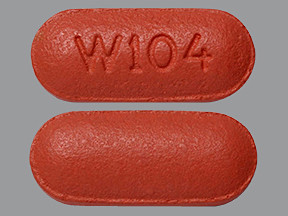NERATINIB - ORAL
PHONETIC PRONUNCIATION: (ne-RA-ti-nib)
COMMON BRAND NAME(S): Nerlynx
GENERIC NAME(S): neratinib maleate
Uses
USES: Neratinib is used to treat breast cancer after treatment with certain other medications (such as trastuzumab). Neratinib belongs to a class of drugs known as kinase inhibitors. It works by slowing or stopping the growth of cancer cells.
How to use NERATINIB - ORAL
HOW TO USE: Read the Patient Information Leaflet if available from your pharmacist before you start taking neratinib and each time you get a refill. If you have any questions, ask your doctor or pharmacist. Take this medication by mouth with food as directed by your doctor, usually once daily. Swallow the medication whole. Do not crush, chew, or split the tablets. Avoid handling or touching crushed or broken tablets. Use this medication regularly to get the most benefit from it. To help you remember, take it at the same time each day. The dosage is based on your medical condition and response to treatment. Do not increase your dose or use this drug more often or for longer than prescribed. Your condition will not improve any faster, and your risk of serious side effects will increase. To help prevent diarrhea, your doctor should prescribe anti-diarrhea medication (such as loperamide) for you to take on a regular schedule during the first 2 months of treatment with neratinib. Follow your doctor's directions to continue taking anti-diarrhea medication on a regular schedule or to take it only as needed. Medications which reduce or block stomach acid (such as proton pump inhibitors-PPIs, H2 blockers, antacids) may reduce the absorption of neratinib, making it work less well. Do not take PPIs (such as omeprazole, lansoprazole) or H2 blockers (such as famotidine, ranitidine) while using this medication. If you take an antacid, take it at least 3 hours before taking neratinib. Avoid eating grapefruit or drinking grapefruit juice while using this medication unless your doctor or pharmacist says you may do so safely. Grapefruit can increase the chance of side effects with this medicine. Ask your doctor or pharmacist for more details. Since this drug can be absorbed through the skin and lungs and may harm an unborn baby, women who are pregnant or who may become pregnant should not handle this medication or breathe the dust from the tablets.
Side Effects
Precautions
Interactions
Overdose
Images
Reviews
Faq for NERATINIB - ORAL
Neratinib is an oral medication used for the treatment of breast cancer.
Neratinib is a kinase inhibitor that works by blocking certain proteins responsible for the growth and division of cancer cells.
Common side effects of Neratinib may include diarrhea, nausea, vomiting, fatigue, decreased appetite, and rash.
Neratinib should be taken exactly as prescribed by your doctor. It is usually taken once daily with food and should be swallowed whole with a full glass of water.
It is important to inform your doctor about all other medications, including over-the-counter drugs and herbal supplements, before starting Neratinib as some medications may interact with it.
Neratinib can potentially harm an unborn baby, so it is not recommended during pregnancy. It is also not recommended while breastfeeding as it may pass into the breast milk.
Hair loss is not a common side effect of Neratinib. However, individual experiences may vary, so it is best to discuss any concerns with your doctor.
The duration of Neratinib treatment will depend on your specific condition and response to the medication. Your doctor will determine the appropriate length of treatment.
There are no specific dietary restrictions while taking Neratinib. However, it is generally recommended to maintain a healthy and balanced diet.
Disclaimer
IMPORTANT: HOW TO USE THIS INFORMATION: This is a summary and does NOT have all possible information about this product. This information does not assure that this product is safe, effective, or appropriate for you. This information is not individual medical advice and does not substitute for the advice of your health care professional. Always ask your health care professional for complete information about this product and your specific health needs.

No Reviews Yet